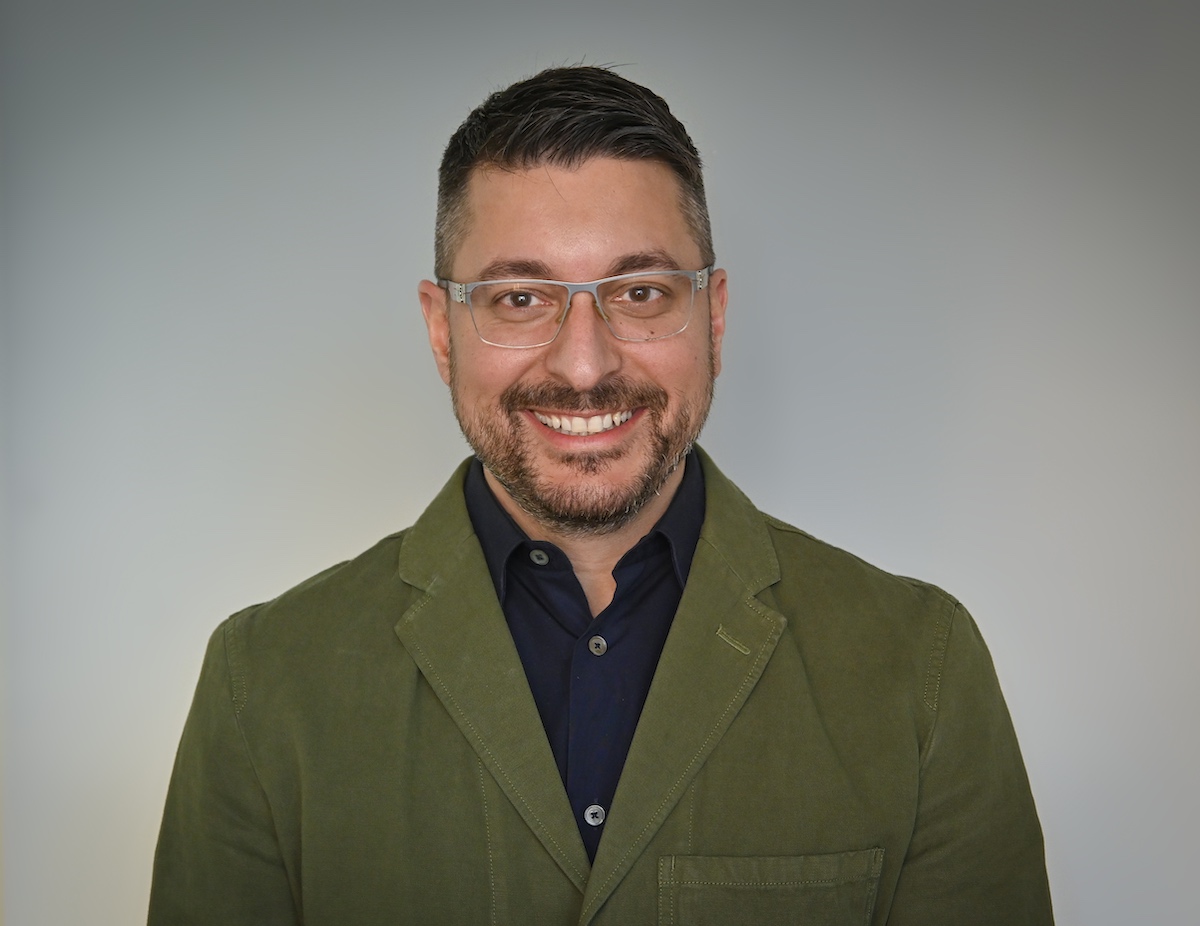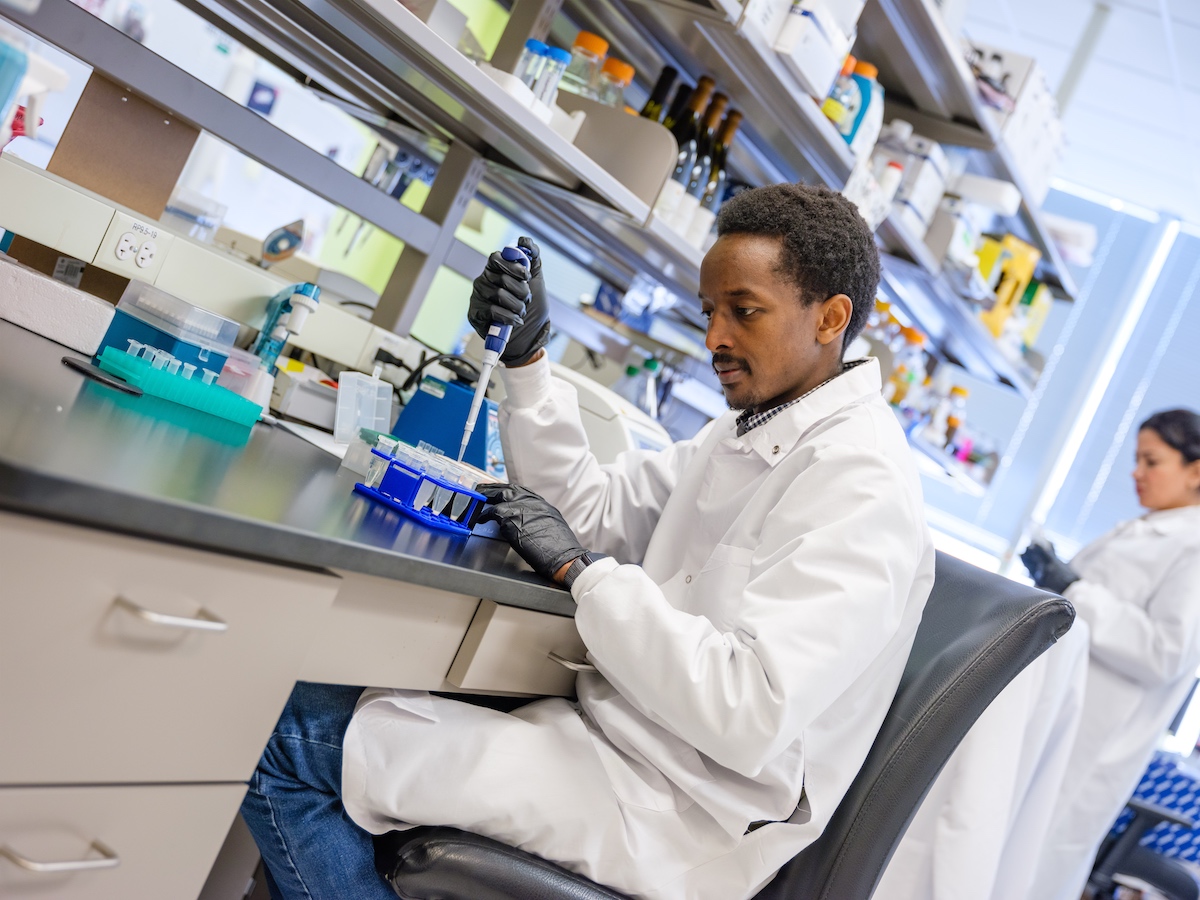The term “entrepreneur” has followed me for a majority of my career. It has most often been used in the traditional sense — as a cofounder and chief business officer of Invisible Sentinel, I built the business with my partners from the ground up and guided development decisions until we were acquired by bioMérieux in 2019.
I’ve learned a lot over the past few years of integrating our company into bioMérieux’s global presence, which includes nearly 50 Philly-based employees, and during this time, I’ve found that I’ve had to be more entrepreneurial than ever before. We have a goal of creating 10 molecular assays each year through the xPRO program that address the unmet diagnostic needs of our clients and can be scaled across different industry segments. When considering the standard timeline for development of molecular assay diagnostics in the industry is 18 months, the only way that we can reach this goal is by being intentional about maintaining an entrepreneurial mindset.
An entrepreneurial mindset manifests itself in a few different ways, but one of the most important things our team excels at is focus. For an entrepreneur to succeed, they must be able to have a single focus on growing their business. For us, that focus is doing things better and faster. To be clear, science isn’t a field in which you can cut corners, but having a single focus helps us excel. We want to be able to innovate as scientists, move the product through our process, move it through production, and get it in the hands of our client in a way that really sets us apart from what our competitors are doing. We don’t get distracted by minutiae that don’t ladder up to the core goals. If something isn’t working, we don’t dwell — we fix it and move on.
Good enough gets you in the market, good enough gets you sales, good enough gets you data for optimization; perfection slows you down.
Entrepreneurs must also be able to pivot. The ability to do so is a big part of our success. Knowing when to change course has helped us tremendously in the diagnostics field, as stagnation can be a death toll for a young company. I can say that Invisible Sentinel when it started was not the same company it was when it was acquired. We pivoted approaches, directions and strategies several times to continue to our trajectory as we better understood the landscape of the industry. This ability is still required today, as we solve more complex problems day-to-day and spur the advancement of the application of predictive diagnostics across life science segments.
I’ve found over time that a successful pivot can only occur when you have full buy-in from key stakeholders. The only way to achieve this is to lean into the conversations surrounding the pivot with full transparency to further foster trust. We only pivot when we know we’re going to move in a better direction and we’re upfront about the considerations that have led us to identifying an alternate path forward. This only works if you’re staying close with people and you’re keeping yourselves honest. Nothing should ever be a huge surprise to your investors or your customers.
The last entrepreneurial characteristic might be a bit counterintuitive, but I think it’s one of the most important: making solutions that are good enough to meet the customer’s needs, but not perfect. Paralysis analysis is a real issue that plagues segments of industry. While we are never cavalier or rushed during the design phase, there’s an element of any diagnostic solution that requires in-field testing to optimize the perfection that you’re striving towards, is ultimately going to be driven by what you learn in the marketplace. If you focus on being perfect upfront, it will take you two years to get to market. We’re just not striving for absolute perfection with every launch because we don’t have to be and shouldn’t be — and we’ve proven that. Good enough gets you in the market, good enough gets you sales, good enough gets you data for optimization; perfection slows you down.
Entrepreneurs are allowing the field of microbiology to grow like never before and our entrepreneurial spirit has brought us places we only dreamed of in the beginning. Injecting that drive and focus into the scientific community can only help it grow.
Before you go...
To keep our site paywall-free, we’re launching a campaign to raise $25,000 by the end of the year. We believe information about entrepreneurs and tech should be accessible to everyone and your support helps make that happen, because journalism costs money.
Can we count on you? Your contribution to the Technical.ly Journalism Fund is tax-deductible.
Join our growing Slack community
Join 5,000 tech professionals and entrepreneurs in our community Slack today!

The person charged in the UnitedHealthcare CEO shooting had a ton of tech connections

The looming TikTok ban doesn’t strike financial fear into the hearts of creators — it’s community they’re worried about

Where are the country’s most vibrant tech and startup communities?


